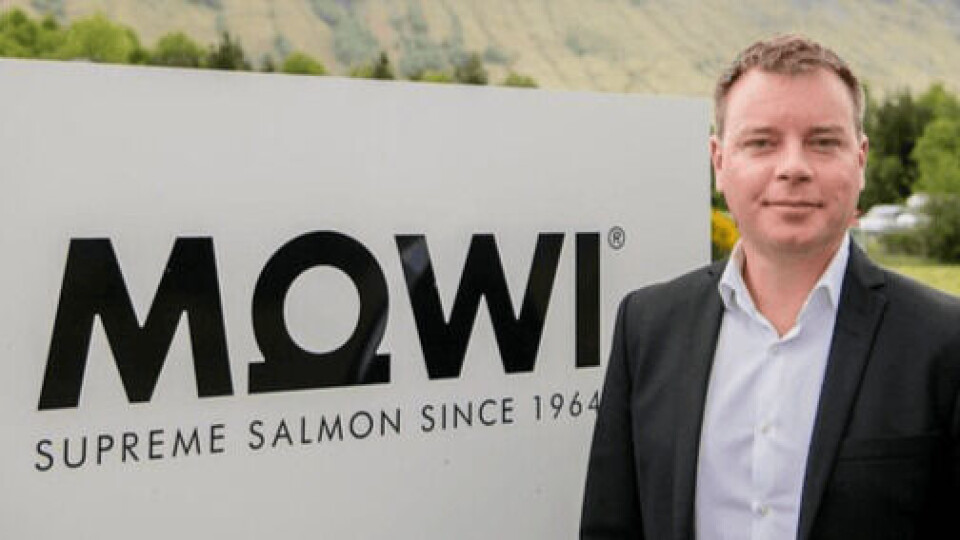
Looking back, thinking ahead: Ben Hadfield
Fish Farming Expert has asked individuals connected to the salmon farming industry about their year, and what they hope for in 2021.We conclude the series with Ben Hadfield, chief operating officer farming for Mowi Scotland, Ireland and the Faroes.
The Covid-19 pandemic made 2020 a difficult year for many businesses and organisations. How did it affect yours?
For Mowi in Scotland, like many other food growers in the country, we saw challenges in export logistics and also opportunities in domestic markets that were quickly adapting to a fluid situation. We took our responsibility as an essential service very seriously and did what we needed to do to ensure continued supply of seafood products was quickly reaching markets. Our highest priority when the pandemic hit early in the year was to ensure our employees were protected at work, and to ensure our value chain was not interrupted and our operations were functioning well.
What was the most significant event of 2020 for your company?
When we entered 2020, we were working hard to improve the biology in farming and making steady progress. However, by early spring it would be clear that the most profound impact on our business would be from a human pandemic and that it would have enormous consequences globally.
Despite the pandemic, we have ended 2020 in a good place, biologically. Sea lice levels have been well managed by our team of experts utilising numerous and effective preventative and organic tools. And while sea lice management must be carefully balanced against stress to fish from handling, we are very encouraged to see our fish’s survival rates improve significantly after a challenging summer period. The last quarter of 2020 has seen the best survival rates in the past eight years – at about 98.8% monthly survival from October onward.
Given the external challenges to our business in 2020, Mowi was pleased to continue progress in several key areas of the business, including:
- Installing a new preventative tool at our Port na Cro farm, called a Tubenet, to help avoid sea lice infection from wild sources
- Certification of additional farms to the Aquaculture Stewardship Council’s salmon and trout standards
- Increasing our supply of organic salmon, enabling a consistent supply to customers
- Increasing our internal capacity for supply of farm-raised cleaner fish to aid in sea lice prevention
- Contining support of local communities throughout difficult times, including a new three-year commitment to our longest running sponsorship: Scotland’s iconic sport of shinty
- Submitting an application for a high-energy salmon farm to be located at Kilbrannan Sound, with hopes to expand the socio-economic benefits realised in the region, as well as growing additional premium seafood for expanding markets
We cannot reflect on 2020 without mention of the disappointing fish escapes we encountered. While our efforts to site farms in high-energy areas unlock significant environmental, biological and social benefits, we found ourselves humbled by these escape events. I was very proud of our team’s quick response in extreme weather that quickly rectified a precarious situation at our Carradale farm. The lessons learned from this event sparked immediate actions, and also long-term plans to ensure we meet our obligation to safeguard our fish and employees.
Lastly, we were very proud to end the year with the news that Mowi had been ranked as the world’s most sustainable protein producer (out of the world’s 60 largest publicly-listed animal protein producers) for the second year in a row by the FAIRR Initiative.
What would you like to see happen in 2021 to help the Scottish fish farming industry thrive?
At the end of 2020, Mowi was pleased to present to the Rural Economy and Connectivity Committee (RECC) about the progress our sector has made since RECC published its salmon farming report two years ago. Advancements in fish welfare, third-party certifications, wild and farmed sector collaboration, environmental monitoring and farm location analysis will continue to positively impact ongoing performance of the sector. At the same time, we also announced the sector’s Sustainability Charter – A Better Future For Us All – that commits to 41 social, environmental and economic actions over the coming decades.
To enable future innovation and world-leading practices, Scotland’s salmon farmers will look to its government to ensure the sector is effectively managed – reducing cumbersome, outdated and bureaucratic regulations with efficient and relevant controls. With strong and smart regulatory oversight, we will be sure to do our part in turning Scotland’s Blue Economy and Green Recovery plan into a reality.






















































